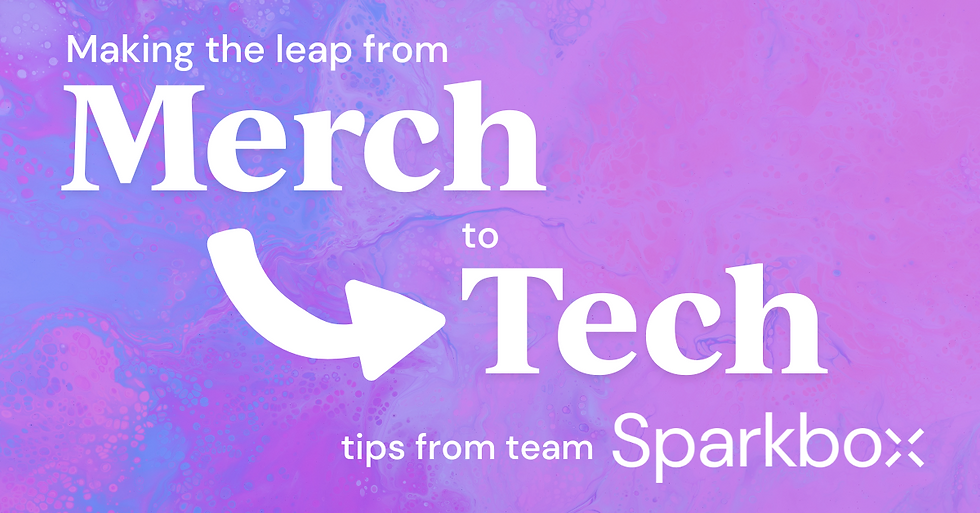- Sparkbox

- Mar 9, 2023
- 2 min read
NYFTLab connects "ground-breaking, women-led startups in retail technology" with global retail partners, an expert network, and investors over a 12 week program

New York Fashion Tech Lab (NYFTLab) has announced Sparkbox will join its decennial cohort, which kicks off in March 2023. Sparkbox was selected by NYFTLab's major fashion and retail partners to participate in the program along with 5 other B2B retail tech startups.
Over the next 12 weeks, Sparkbox will explore commercial opportunities with NYFTLab's fashion and retail partners, which include Saks, Selfridges, TJX, Wolverine World Wide, Burberry, Levi Strauss & Co, LVMH, Macy’s, Richemont, Vera Bradley, Accenture and Fenwick & West LLP. In June, the cohort will present their technologies to retailers, brands, investors, and the press at the annual Tech Runway Demo Day in New York City.
NYFTLabs was co-founded and is produced by non-profit venture catalyst Springboard Enterprises. Over the last ten years, the lab has supported 75 innovative companies including DRESSX, EON, Obsess, Reflaunt, StyleSage, Trendalytics, VNTANA, Zeekit and more. The 2023 cohort includes startups delivering innovative technologies in pricing and inventory optimisation, digital fashion, UCG, AI-based personalisation, and blockchain-based assets. (Alter, Hue, Psykhe, Sociate, Tyb)
Lindsay Fisher, Co-founder at Sparkbox comments: "This program came highly recommended to us and we're so grateful for the opportunity to connect with new fashion and retail partners, the NYFTLab network, and a cohort of impressive retail tech startups and founders. We can't wait to share our vision for the future of merchandise planning across the pond."
Kay Koplovitz, Co-founder and Chairman of the board for the NYFTLab and Springboard Enterprises said: “We founded the NYFTLab with the goal of identifying some of the most innovative fashion technology entrepreneurs and connecting them directly to industry leaders to advance the retail landscape. This year’s cohort will undoubtedly add to the ongoing success of the initiative.”
For more information, please visit https://nyftlab.com/.
Follow Sparkbox for updates here: https://www.linkedin.com/company/sparkboxai.















